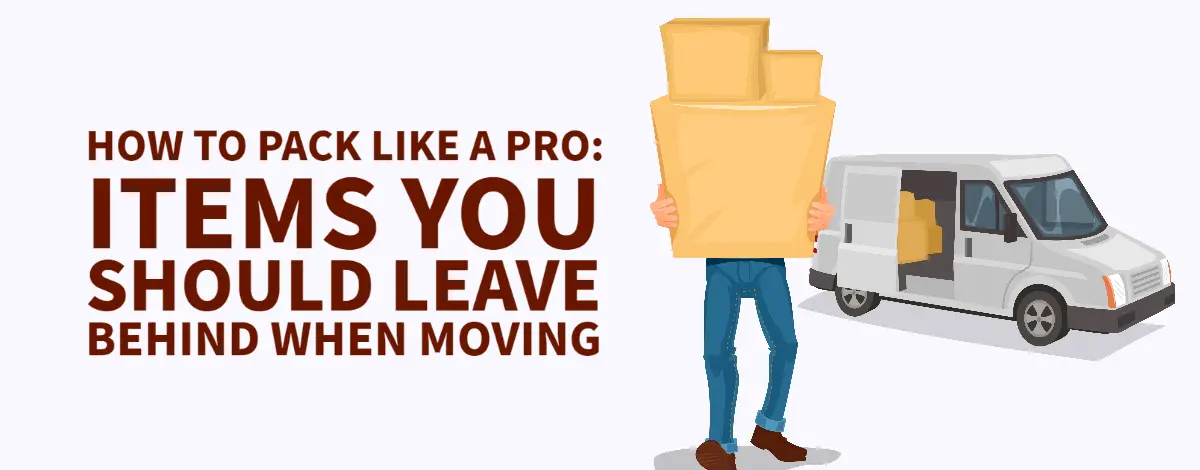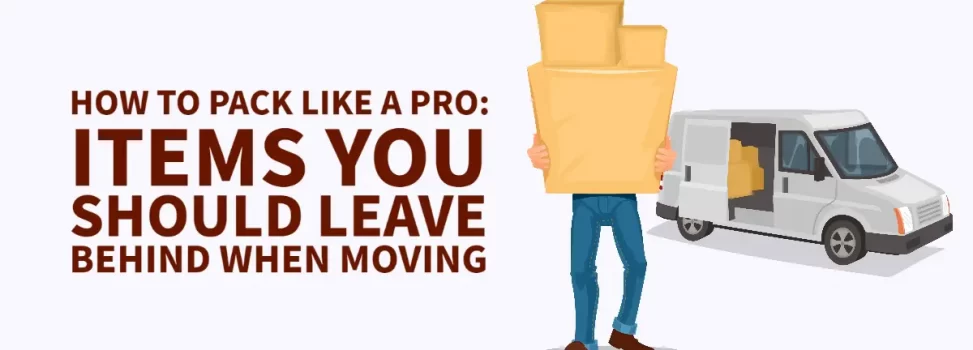Last-minute details might stress you out and throw your moving plans off when they are unfinished. This largely depends on what you decide to pack and what you decide not to. It might be difficult to part with possessions you have had for a long time, but by making decisions in advance, you can spare yourself a lot of headaches in the lead-up to the move. Additionally, you can make some extra cash to help with the cost of relocating by selling any unneeded items.
It can be highly costly to move. Paying for a package, storage, and moving stuff you don’t want to do is the last thing you want to do. You have the rare chance to go through every object you own and assess its significance in your life while you pack up your house. Take advantage of this opportunity to go through your possessions and decide which ones should go with you to your new house and which ones should be sold or donated. The objects listed below should be abandoned when relocating.
How To Purge Clutter Before A Move:
With a few prioritizing recommendations, you can eliminate clutter, cut down on relocation expenses, and make relocating easier both before and after arrival. At some time, you might just want to simplify shifting and sell everything. Now is the ideal moment to provide a gift to your relatives or colleagues if you have pricey antiques or treasures that you won’t be able to transport with you.
Organize a yard sale or a garage sale for anything that can be sold. Aim to extend your sale across several days by waiting for good weather. Keep in mind that most families have free time on the weekends, so making your home feel welcoming will help you draw in more visitors. For the best outcomes, work inside your community if you’re a homeowner’s association or neighborhood member.
Selling your goods online is an additional choice. You can make your own Facebook postings for relatives and friends, post on the Online Store, and use the well-known website. You may decide to mail the items or arrange in-person pickup, but great photographs and thorough explanations of your goods will make a significant difference.
Last but not least, donate the stuff you don’t want to sell. A new home may frequently be found for jackets, shawls, nicely used apparel, furnishings, office supplies, and kitchen equipment. These kinds of gifts can benefit a family for many years and even provide benefits at the end of the year.
Not Packing The Following Items:
Choosing which objects to keep might be challenging, but you can make a list based on how simple it is to replace a particular item, and how frequently you use it. If you know you will be tossing things away when relocating, renting a dumpster for goods that won’t be useful to others can be helpful. Here are some ideas for areas to cut back on:
Clothing:
When it comes to packing clothes, it is simple to go overboard. Spend some time determining which stuff you wear frequently or those you especially like, and then donate the remainder or sell it. To help you make cuts, take into account the time of year or the climate where you’re moving.
Hefty Items:
Large electrical things like unused laptops or desktop computers or DVD players take up a lot of room in a suitcase, much like DVDs and books and DVD players. These items are excellent candidates for donation or a garage sale.
Bathroom Supplies:
Your bathroom cupboards likely contain half of the items that are obsolete, useless, or interchangeable. Make sure you get rid of any expired medicine in the best possible manner.
Aging Furniture:
Furniture is frequently large and difficult to move. It can be the ideal time to get rid of some old items when you move to a new house. If your old furniture is still in useable condition, several philanthropic groups could offer it a new home.
Garage Trash:
Similar to your bathroom cabinet, your garage likely contains a lot of goods that you will never use. Keep in mind you dispose of these materials properly if they contain an insecticide, fertilizer, or any other potentially harmful substances.
Appliances:
It’s possible that moving into a new house necessitates updating your existing refrigerator or washer/dryer set. If this is the case, and you still need to dispose of your outdated equipment, a nearby charity would probably be more than delighted to pick them up — providing they are still in working order, of course. This will also make it much easier for your moving company to have you packed and prepared to depart.
Items For The Home:
Look around your house and make a list of the things you use and the things that have been collecting dust. Selling household stuff during a garage sale is a great idea.
Ancient Home Furnishings:
All of us have goods lying about the house that we either received as presents or believed could be useful one day. The coffee machine will also make you a cappuccino when you push a button or the microwave that can also cook an egg.
However, even if some of these goods can seem handy in the store, if you don’t use them frequently, you generally don’t require them.
Before you relocate, get rid of any kitchen gadgets or other household things you don’t use to save yourself the trouble of pondering why you believed it would be a smart option to bring them with you.
Bedding:
Most likely, you need to replace some old beds and comforters with new ones. Not only will the fresh sheets be more pleasant, but the delivery truck will also have a lot more space.
Vehicles:
You might wish to think about selling the extra automobile or truck that has been parked on your property if that is okay. This would assist in reducing some moving-related costs.
Your Library Of Books:
In a relocation, books may add up rapidly. They are bulky and frequently delicate. Even while you might be sentimentally tied to your collection, it might be time to downsize it to the essentials or think about switching to ebooks.
Curtains And Blinds:
Think about removing your drapes and shades. They probably won’t fit the new windows in your new house, so leaving them behind will be kind to the next owners.
Lighting Devices:
It’s polite to leave all of your home’s lightbulbs in place. You will require to purchase new ones to substitute for them if you intend to bring them with you.
Home Decor:
Examine all of your home furnishings to see whether anything is worth bringing. Check to see if your present home’s furnishings will fit the style of your new place and decide if you love them enough to box them up and move them.
Cooking Utensils:
You should completely purge your kitchen of junk before moving. Get rid of stuff like broken dishes, extra cookware, takeaway orders, additives that are only good for one use, and disused appliances.
What To Bring When Relocating:
Even though the items on your “keep list” are more crucial than those you leave behind, making this list is typically simpler (and harder to trim). Even so, it may be beneficial to consider your things’ potential value in the future while deciding what to maintain when relocating. Here is a list of some typical (and unusual) objects you should bring with you when trying to move:
Your Initial Overnight Bag:
You’ll be glad you took the time to arrange your initial overnight bag for the new home. This not only enables you to locate a wardrobe change fast, but it also eliminates the need for you to search among boxes to locate your toothpaste, pillow, or any other first-night requirements.
Your Treasured Recollections:
Gifts of emotional significance, such as heirlooms and presents, should always be taken into account. Try to convert analog images and film to their electronic versions if at all possible. Inquire your operator about specialized relocation services if you have concerns about large, delicate, or valuable objects.
Personal Documents:
When transferring, it goes without saying that you should keep vital paperwork with you, such as your court order, familial official documents, and bank paperwork. Take into account putting or uploading less significant documents onto your computer instead of carrying around a heavy load.
Favorite Things:
Making your new home as comfortable as possible for your pet might help reduce the stress of relocating. Favorite bedding, chains, and toys can make a significant impact and ease the transition. To understand more about how to handle pets, see the relocation guide of the place where you want to relocate!


